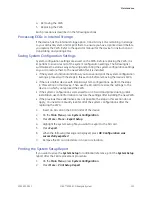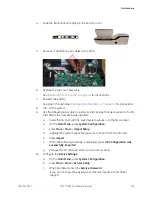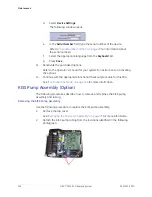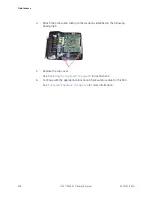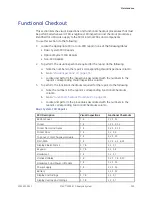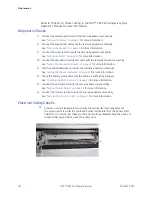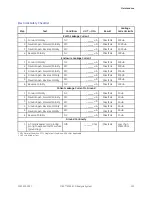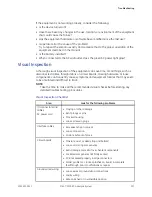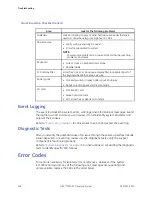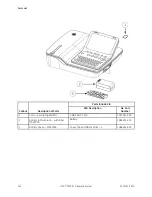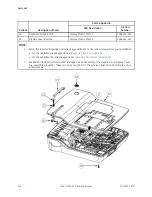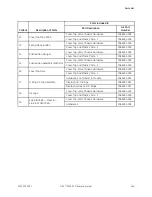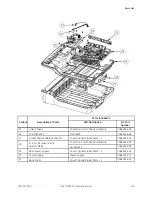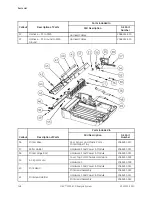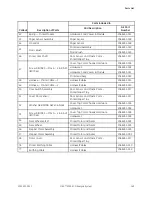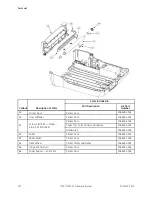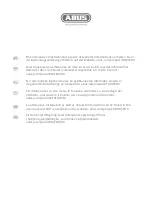
5
Troubleshooting
This chapter provides guidelines for troubleshooting issues with the device. It provides
the following sections:
• ECG Data Noise
• General Fault Isolation
• Power-up Self Test
• Visual Inspection
• Event Logging
• Diagnostic Tests
• Error Codes
ECG Data Noise
Several factors can result in unacceptable noise levels on ECGs.
•
Environmental factors
Interference from electromagnetic equipment (such as radios, cell phones, or other
medical equipment) can result in excess noise. Verify the environment in which the
device is being used meets the minimum EMC requirements. See
Safety Information” on page 18
and
Chapter B
,
“Electromagnetic Compatibility
, for more information.
•
Inadequate patient preparation
Improper patient preparation or electrode placement can result in excess noise on
ECGs. Verify the patient’s skin has been properly prepared and that the electrodes
have been placed correctly. Refer to Chapter 4, “Patient Preparation,” in the
MAC™
2000 ECG Analysis System Operator’s Manual
for more information.
•
Acquisition module failure
Run the Acquisition Module diagnostic test to ensure that the acquisition board is
functioning properly. See
“Testing the Acquisition Module” on page 51
for more
information.
•
Leadwire, cable, and electrode failure
2053535-003C
MAC™ 2000 ECG Analysis System
135
Summary of Contents for MAC 2000
Page 41: ...Product Overview 2053535 003C MAC 2000 ECG Analysis System 41 ...
Page 134: ...Maintenance 134 MAC 2000 ECG Analysis System 2053535 003C ...
Page 160: ...Parts List 160 MAC 2000 ECG Analysis System 2053535 003C ...
Page 182: ...182 MAC 2000 ECG Analysis System 2053535 003C ...
Page 183: ......

